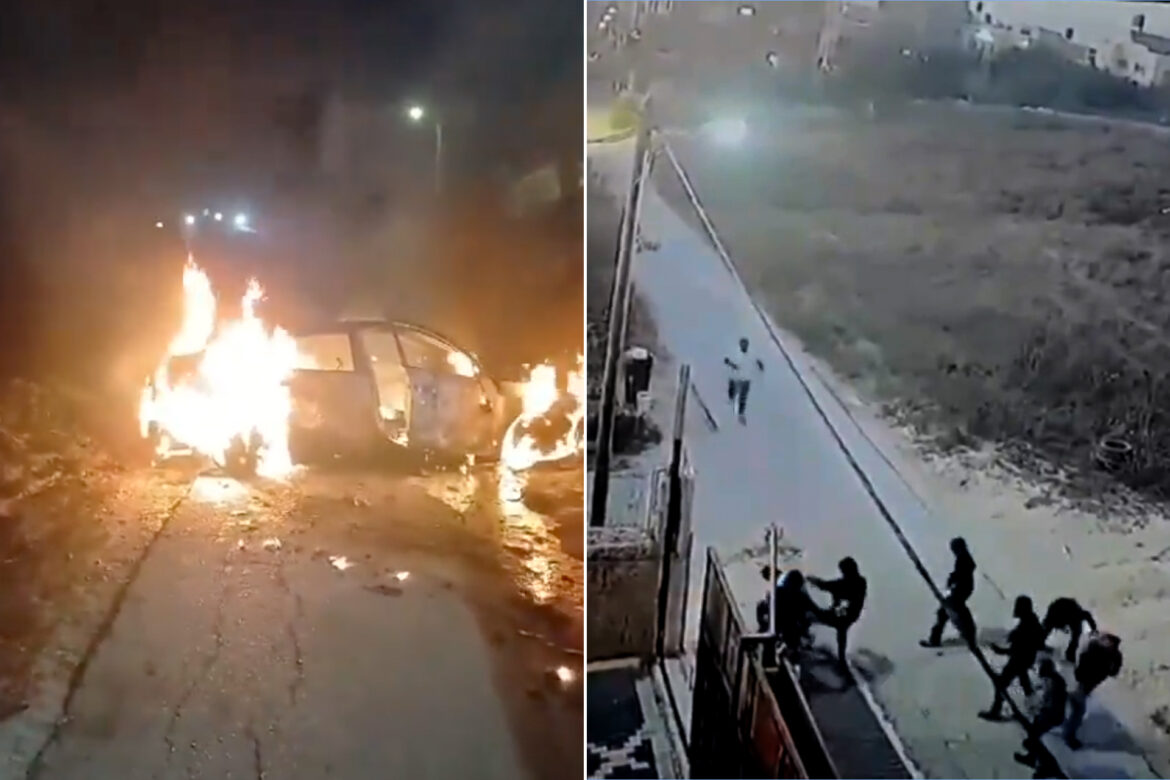The International Crisis Group has released its 2024 report, “Eradicating Israeli Settler Violence at Its Roots,” which examines the roots of settler violence, its motivations and recent acceleration, its links to the Israeli government’s goals, and the obstacles it poses to efforts to achieve a just and sustainable peace between Israel and the Palestinians.
The report, which consists of four main axes, in addition to two introductions, a conclusion and appendices, suggests that external powers invested in resolving the Palestinian-Israeli conflict should impose sanctions on violent settlers, as some Western countries have begun to do.
Crisis Group’s 246th report on the Middle East begins with the roots of settlements when Israel occupied the West Bank, Gaza, East Jerusalem and the Golan Heights in 1967. The then-ruling Labor Party justified settlement construction in those territories as a security measure that provided strategic depth for Israel and gave its negotiators leverage over the status of the territories.
Although Israel claimed that it only confiscated land by military order and for purely security purposes, many of the outposts confiscated by military order eventually became populated by Israeli civilians, and a group of ideologically motivated settlers began building settlements without government permission, which in many cases ended up accepting, then protecting, and justifying a practice known as “establishing facts on the ground” and imposing a fait accompli.
Stages of settlement
The guiding doctrine for settlement was set out in the Allon Plan of July 1967, named after Yigal Allon, a general who served as deputy prime minister after the 1967 war, which recommended that Israel retain both the Jordan Valley and the “Jerusalem Corridor,” or the highlands surrounding Palestinian East Jerusalem.
Due to international rejection, concealment became the slogan, and Prime Minister Golda Meir instructed her government ministers to “stop talking for our homeland, talk less and do as much as possible.” The settlement movement then gained state legitimacy when the Likud Party took power in 1977.
The Labor government of Yitzhak Rabin in 1992 was the first and only one to take concrete initial steps to limit settlement expansion, but the right-wing opposition began to feel betrayed and aggressively promoted the agenda of a “Greater Israel” stretching from the Jordan River to the Mediterranean Sea across the occupied West Bank.
More recently, organizations such as Amana, a non-governmental cooperative that is the most effective arm of the settlement movement, have begun establishing “pastoral outposts” in Area C, which constitutes 60% of the West Bank and is under full Israeli control under the Oslo Accords.
Settler violence and its motives
The report defined settler violence as the methods used by Israelis living in the occupied West Bank to terrorize and harm Palestinians, and said it included encroachment on land and water sources, setting fire to cars, homes and other property, stealing or harming livestock, burning and cutting down olive trees, vandalizing churches and mosques, and shooting civilians, in addition to harassment, intimidation and abuse.
The report pointed to two main motives for committing violence:
- One is revenge and dispossession in the wake of any violence perpetrated by Palestinians.
- The other, more fundamental, goal for the settlers is to expel Palestinians from the West Bank and seize their lands, especially in Area C.
A number of settlers in the West Bank justify their choice to live in the occupied territories with a range of views, including rejecting the concept of the West Bank as biblical Judea and Samaria, as part of the ancient heritage of the Jewish people, or as simply part of the modern state of Israel.
“Settler violence is at an all-time high, with Israeli settlers harassing, terrorizing and killing Palestinians across the West Bank in greater numbers, with greater frequency and enthusiasm,” said Israeli analyst Merav Zonszein, lead contributor to the report.
“They are being encouraged by a government committed to deepening control of the West Bank and thwarting a Palestinian state,” Zonszein added. “To stop settler violence, the United States and other Western countries must target not just individual settlers but the government entities and policies that support the settlement enterprise.”
Settlers and the State
Israeli governments have failed to curb this violence and have often tolerated it, but it has escalated sharply since late 2022, when Prime Minister Benjamin Netanyahu’s government took office, and rose further after the Hamas-led attack on October 7, 2023.
Israel’s devastating war on the Gaza Strip has diverted attention from the increasingly systematic violence perpetrated by settlers against Palestinians in the occupied West Bank, where they increasingly act in coordination with the army and wear military uniforms themselves, with the active support of far-right government ministers, the report said.
The report warned that imposing sanctions on individuals – as some countries have begun to do – obscures the essence of the problem, and reinforces the narrative that a small number of lawbreakers are acting outside the scope of state authority, and thus on Western capitals that mostly agree that the settlements violate international law and go further.
The Crisis Group concluded that the settlement enterprise and the corresponding dispossession of Palestinians are slowly killing any hope of a lasting solution to the conflict. It stressed that the impunity enjoyed by settlers and the fact that hardline Israeli leaders and the government itself are not paying a price for their failures not only threatens to exacerbate the conflict, but has over time empowered the most lawless elements of Israeli society.



